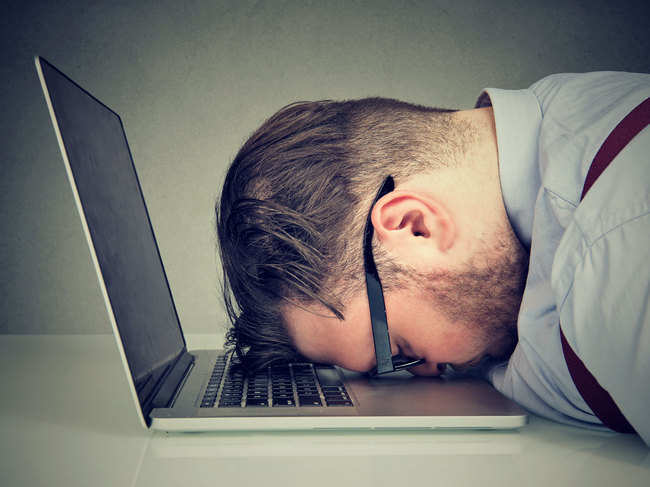 iStock
iStockMental health has been emerging as one of the most important concerns since the beginning of the pandemic.
The7thFold's ‘Employee Well-Being Survey, 2020’ highlights the impact of the current pandemic on the mental and physical well-being of employees in India. The survey conducted in July and August with 509 respondents across metro cities and diverse sectors aimed to recognise the distress faced by employees during these uncertain times and understand the role of organisational support and benefits in the new normal.
The survey found that employees below the salary of Rs. 5 lakhs per annum were more vulnerable and reported personal finances (55%) and career prospects (53%) as their biggest sources of stress. 35% of employees with an annual salary of Rs. 21 – 30 lakhs per annum reported burnout and poorest mental well-being scores.
The self-employed category was slightly better placed when it came to overall well-being as compared to others. 45% of employees working for an employer complained of anxiety or depression against 30% of those who were self-employed. 44% of employees working full-time from home reported feelings of anxiety. Boredom was least reported by those who worked full-time from their workplace (26%).
28% of work-from-home employees reported burnout with 48% feeling stressed due to task deadlines, and 35% of employees working from home were worried about self/ family’s mental health.
Mental health of the unemployed was the worst. 47% of unemployed reported anxiety with 61% of them feeling stressed and 42% feeling anger. 60% of the unemployed showed stress regarding uncertainty of the future and 61% for career growth. The blended model of working from home and workplace showed higher benefits than those employees who were full-time working from either home or workplace.
There were no significant differences in well-being seen between those who received a pay-cut and those who received an increment (no bonus). The data suggests that offering employees a bonus and no increment was better for their well-being than offering an increment and no bonus.
“It is a well known fact that physical and mental well-being are correlated, one cannot be managed at the expense of the other. The WFH concept due to Covid-19 was literally adopted overnight by employers creating a whole new set of challenges for all stakeholders. Organisations will thus have to now move towards a holistic employee well-being model which prioritises both pillars of physical and mental health,” Hamsaz Wadhwani, founder and CEO, The7thFold, told ET.
The7thFold is an HR and well-being organisation that focuses on building culture, mental well-being and performance through various people interventions. The firm conducts employee well-being online programmes and online interventions apart from holistic wellness programmes.










 Get Unlimited Access to The Economic Times
Get Unlimited Access to The Economic Times
